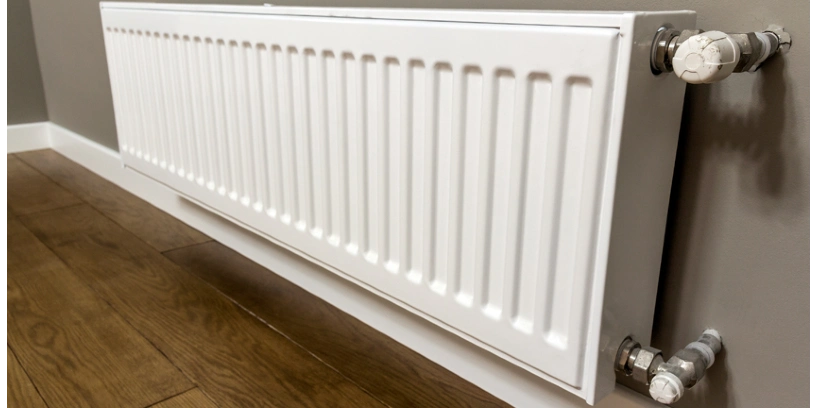Gas Heater vs. Electric Heater: Pros and Cons

Whether you’re building a home or replacing your existing heating equipment, you might be curious about which type of fuel works best and costs less. The two fuel sources we’re exploring here are natural gas and electricity. Compare the pros and cons of gas heaters and electric heaters to help you decide which one is the better option for your home.
Pros and Cons of a Gas Heater
Installation
Gas furnaces are quite large and complex, necessitating professional installation. They also require a chimney or flue to vent out emissions from the combustion process. Your home must be able to accommodate a chimney, and if it doesn’t already have one, you must have one added during installation.
Cost
The purchase and installation price of a gas heater is higher than a comparable electric model. However, natural gas is a much less expensive fuel than electricity, making gas furnaces more affordable to operate.
Lifespan
Gas furnaces typically last 10 to 20 years with regular maintenance. This is a shorter lifespan than electric heaters.
Maintenance
When you hear HVAC companies encourage customers to have their furnaces maintained once a year, they’re referring to gas furnaces. Annual maintenance performed by a professional is important to keep gas-fired heaters in good condition for many seasons to come.
Safety
The biggest issue with gas heaters is the potential for a carbon monoxide leak, which can be poisonous or even fatal at high enough doses. A carbon monoxide detector installed near the furnace helps alert you to any danger. Gas leaks and fire are also possibilities, which you can keep under control with routine maintenance.
Pros and Cons of an Electric Heater
Installation
Portable electric heaters are easy to plug in and use as needed. Wall-mounted electric heaters require formal installation, but this process is easy to do yourself. As for electric furnaces, the installation is generally faster, easier and less costly than gas furnaces because no venting system is required.
Cost
The initial purchase price of an electric heater is generally lower than a gas alternative. However, the higher cost of electricity makes this type of heater more expensive to operate month by month.
Lifespan
Quiet, durable electric furnaces can last between 20 and 30 years. This is a longer lifespan than gas furnaces.
Maintenance
Maintaining an electric heater is a simple process that doesn’t require much effort or expert knowledge. Many times, you can perform maintenance yourself, only needing the help of a technician on the rare occasion that the equipment breaks down.
Safety
Since electric heaters don’t combust fuel onsite, there’s no risk of carbon monoxide or gas leaks. However, all high-power electrical equipment runs the risk of malfunctioning and starting a fire. Occasional maintenance and using your heater according to the manufacturer’s directions reduce the risk of fire for a safe home heating option.
The Bottom Line
Gas heat is probably your go-to option if you have a large home and/or live in a cold climate. Higher heating requirements in these situations allow a gas furnace to recoup the more expensive upfront cost and greater maintenance requirements by providing lower operating costs.
Electric heat could be a superior option for smaller homes, those located in warmer climates or anywhere natural gas isn’t available. The lower purchase and installation cost along with lower maintenance requirements are highly desirable in these situations.
At Aire Serv®, we can help you make the best home heating decision. For expert advice, or to schedule heater installation services, please contact us today.
 Click to call
Click to call


